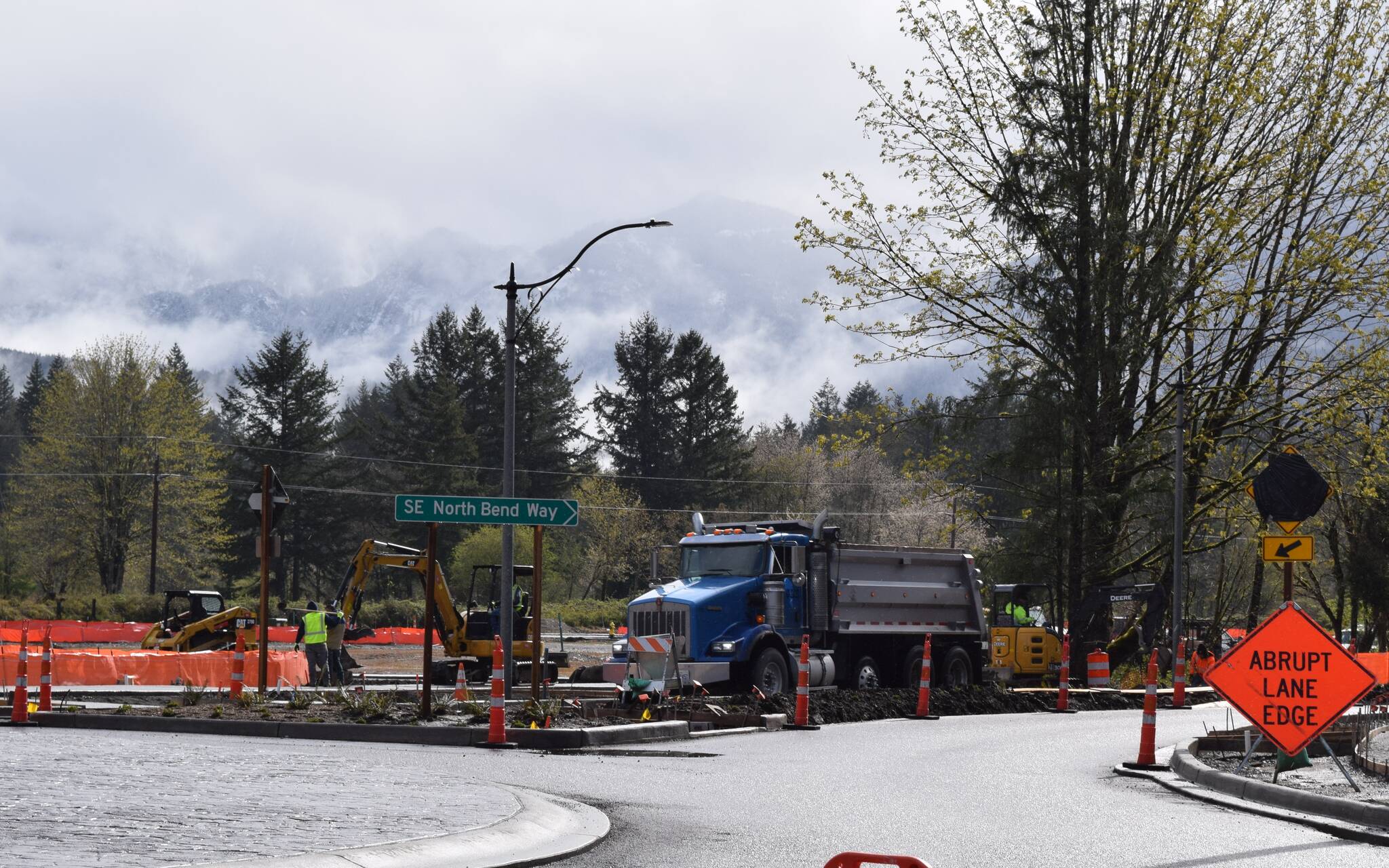Cedar River Developers have sold the former Dahlgren property in North Bend, the proposed site of a 212-unit housing development, for over $31 million, according to documents obtained by the Valley Record.
The April 8 sale comes after what has been years of delays for the project, which is expected to bring 132 townhomes and 80 apartment units to an area adjacent to Tanner Landing Park along Southeast North Bend Way.
The Dahlgren property, also known as the mule pasture, was sold to KL Trip AIV LLC, which according to county documents is a Delaware-based company. However, the state database for corporations lists its primary office in Miami, Florida.
It’s unknown what prompted the sale. Developers have previously expressed frustration with delays on the project, according to previous reports in the Valley Record. Those frustrations came in 2020, after a delay in securing sufficient water supply for the project site.
Representatives from Cedar River have not returned requests for comment.
The city said it was not privy to the transaction, but work on the project, including the construction of a new roundabout at a nearby intersection, remains unaffected.
Applications for building permits have not yet been approved by the city, but they are active and in good standings, said Rebecca Deming, the city’s community and economic development director.
Deming said the permits were extended while building officials continue to work alongside the city’s public works department. Work on the property has been ongoing since clearing and grading began in October 2020. Since then, utility work has also been completed, the city said.
Cedar River first completed an application for the project in March 2017, with “vertical construction” expected to follow in 2018 or 2019, according to a 2017 city news release. That was delayed due to concerns about sufficient water supply.
The Dahlgren property is in city limits, but was originally just outside its water service district, in an area served by neighboring Sallal Water Association — a nonprofit, board-operated water service company that serves about 1,700 residents in eastern North Bend.
The 212-unit development was the first of which Sallal could not sufficiently provide water certificates. That slowed the process, and developers eventually requested the property be removed from Sallal’s service area.
That request was granted in 2019, after the King County Utilities Technical Review Committee decided that Sallal had not provided water in a reasonable amount of time, and removed the property from its jurisdiction.
The ruling didn’t automatically grant the property to the city, but the city gained ownership a year later after the state Department of Health approved its 2020 water systems plan. The removal of property from Sallal’s area has been a source of contention between the two sides, the Valley Record previously reported.
A city spokesperson told the Valley Record in 2020 that they have set aside sufficient water for the Dahlgren project.
Both the Dahlgren project and the city’s water plan have been heavily contested by The Friends of the Snoqualmie Valley Trail and River, who argue that the city is not doing enough to protect water levels in the Snoqualmie River.
In 1999, it was discovered that North Bend had been taking too much water from its well and entered a decade-long, self-imposed building moratorium.
The city exited that moratorium in 2009, when its Centennial Well came online. Because the well shares groundwater with the Snoqualmie River, the city was required to find a backup source to provide mitigation water.
The city contracts with Seattle Public Utilities as a primary mitigation source using Hobo Springs. As part of its well permit, it is required to have a backup for Hobo Springs, which during peak summer demand can be just at or below levels needed to properly mitigate the river, according to the city’s water systems plan.
The city made improvements at Hobo Springs this past November, designed to increase its mitigation capacity, but have been unable to secure a secondary mitigation source. The city has spent decades negotiating with Sallal, hoping to reach a deal where the water association would provide the city with mitigation water.
The city’s water system plan notes that it is “predicated on the city reaching an agreement with Sallal Water Association to obtain additional mitigation water within the next two years.”


